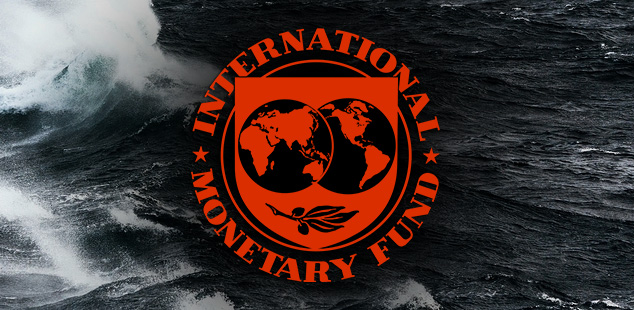
There has been no shortage of warnings about the world being on the verge of another financial disaster. The Federal Reserve, having pumped billions of dollars into circulation through their bond-buying program known as Quantitative Easing (QE), is gearing up to start raising interest rates for the first time in seven years, and this has everyone wondering if the world’s economies can handle it.
The most recent warning is coming from a very credible source, The International Monetary Fund (IMF). According to The Guardian, the IMF’s most recent Global Financial Stability report states that “The next financial crisis is coming, it’s just a matter of time – and we haven’t fixed the flaws in the global system that were so brutally exposed by the last one.”
While QE stimulus has succeeded in sparking economic growth in developed countries, the IMF is quick to point out that “the cheap money created to rescue developed economies has flooded out into emerging markets, inflating asset bubbles, and encouraging companies and governments to take advantage of unusually low borrowing costs and load up on debt.”
The IMF report also states, “Balance sheets have become stretched thinner in many emerging market companies and banks. These firms have become more susceptible to financial stress. Shocks may originate in advanced or emerging markets and, combined with unaddressed system vulnerabilities, could lead to a global asset market disruption and a sudden drying up of market liquidity in many asset classes.”
This instability would be magnified if the Federal Reserve were to begin raising interest rates and very well could lead to a global financial crisis since many markets appear to be “brittle” and “woefully underprepared.” Pumping money into the system did boost the economy, but the issues that caused the 2008 crash have not been corrected. QE created a bubble and an increase in interest rates would be the pin.
The IMF is not the only Chicken Little running around saying that the sky is falling. The Bank of England’s chief economist, Andy Haldane, has been outspoken in saying that the world is about to enter the next stage of a “three-part crisis trilogy.” The Guardian also points out that “Unctad, the UN’s trade and development arm, would like to see advanced economies boost public spending to offset the downturn in emerging economies,” a balance needed to avoid a financial crisis. Finally, the Bank for International Settlements has stated that they believe “interest rates have been too low for too long, encouraging too much risk-taking in financial markets.”
It does not require a degree in Economics to understand that the 2008 financial crash was caused by banks and investment firms taking too many risks. With central banks pumping cheap money into the system over the past seven years, greed seems to have trumped logic once again. At first glance things seem to be looking up, but while you are looking up you may just start to see the cracks begin to appear.
How to protect yourself from a financial crash
Many financial experts will tell you that your investment portfolio should be diversified with physical gold. The reasoning is that gold acts as a hedge against inflation and financial disasters since it is not directly tied to the markets. However, gold does historically tend to go up as the stock market goes down (read: 10 Factors That Influence Gold Prices). So, while a rise in interest rates may boost the markets, and lower gold prices in the short-term, the chance that this interest rate jump will ultimately cause a financial crisis seems to be quite high.
Learn which types of gold investments may help protect your portfolio from a financial crash with our Free Gold Investor Guide.

